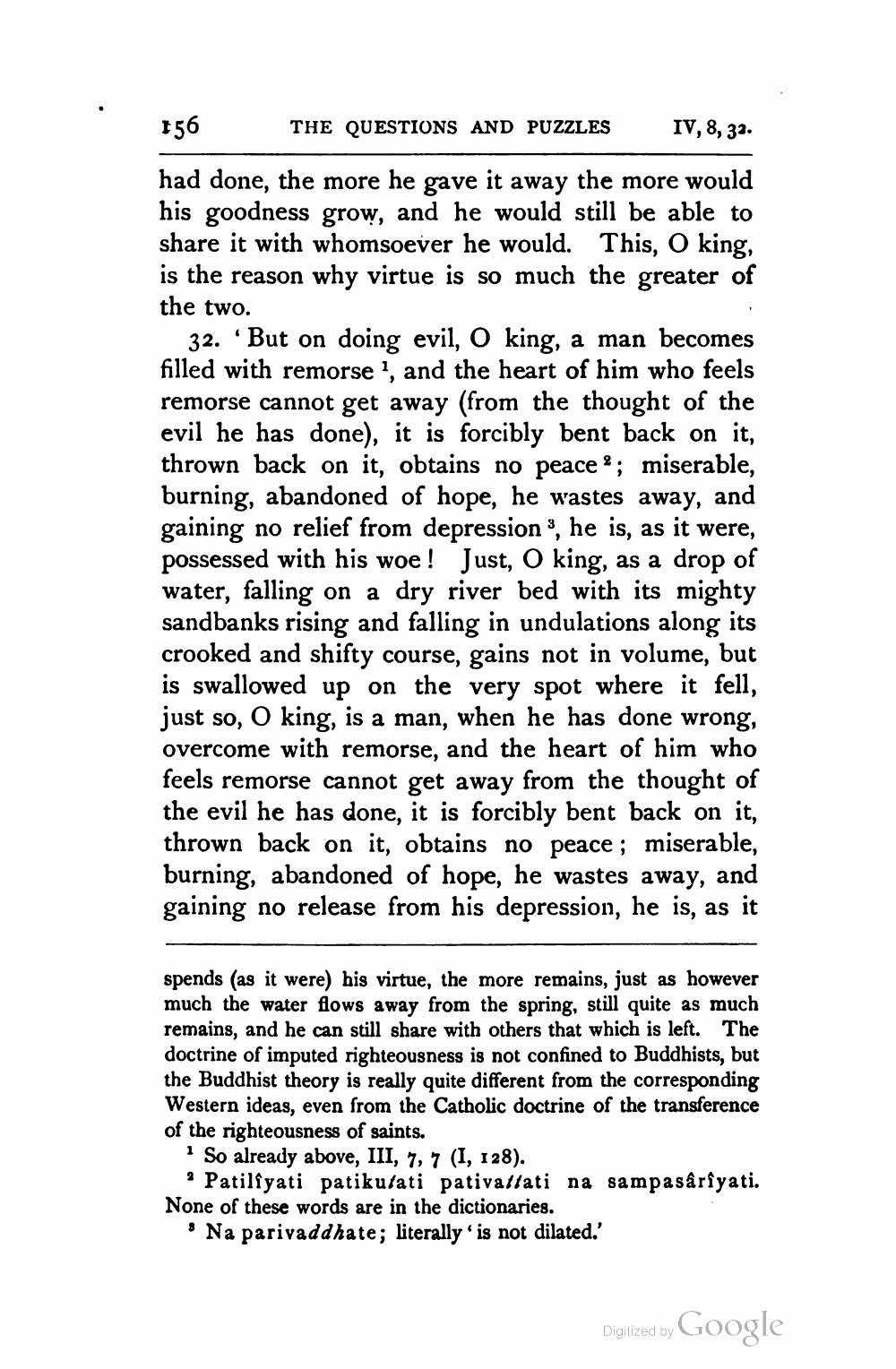________________
156
THE QUESTIONS AND PUZZLES
IV, 8, 32.
had done, the more he gave away the more would his goodness grow, and he would still be able to share it with whomsoever he would. This, O king, is the reason why virtue is so much the greater of the two.
"
32. But on doing evil, O king, a man becomes filled with remorse 1, and the heart of him who feels remorse cannot get away (from the thought of the evil he has done), it is forcibly bent back on it, thrown back on it, obtains no peace; miserable, burning, abandoned of hope, he wastes away, and gaining no relief from depression 3, he is, as it were, possessed with his woe! Just, O king, as a drop of water, falling on a dry river bed with its mighty sandbanks rising and falling in undulations along its crooked and shifty course, gains not in volume, but is swallowed up on the very spot where it fell, just so, O king, is a man, when he has done wrong, overcome with remorse, and the heart of him who feels remorse cannot get away from the thought of the evil he has done, it is forcibly bent back on it, thrown back on it, obtains no peace; miserable, burning, abandoned of hope, he wastes away, and gaining no release from his depression, he is, as it
spends (as it were) his virtue, the more remains, just as however much the water flows away from the spring, still quite as much remains, and he can still share with others that which is left. The doctrine of imputed righteousness is not confined to Buddhists, but the Buddhist theory is really quite different from the corresponding Western ideas, even from the Catholic doctrine of the transference of the righteousness of saints.
1 So already above, III, 7, 7 (I, 128).
Patiliyati patikulati pativa/lati na sampasârîyati. None of these words are in the dictionaries.
'Na parivaddhate; literally 'is not dilated.'
Digitized by Google




